INTRODUCTION
Travis Grech, Project Manager of Ultra Australia, an internationally franchised electronic music festival, helped license the Ultra brand and bring it to Down Under. We talked to Travis recently to get his take on everything from working with an event franchise to what next year’s show might look like in light of COVID restrictions.
TOPICS WE DISCUSS
- The unique challenges of producing a licensed event in different countries
- What goes into creating a high-production music festival (“Pyro is a big part of Ultra.”)
- How he communicates across different teams and countries
- What manual processes would they like to see technology replace
- COVID-19 challenges and how they are managing it
- Why they might be jinxed when it comes to opening the main stage
- What keeps him motivated
FUN QUOTES
On working with an internationally licensed music festival:
“It's like a franchise in every aspect. They've got their ways of doing things, and it's about adapting to each country individually.”
On fragmented systems:
“Each department usually works in spreadsheets to manage their orders, schedules, and other relevant details. Although each department may have really good systems in place, the information can sometimes be fragmented and a bit difficult to track across all departments.”
On how things seem to always go wrong right before they open the doors:
"Are we jinxed to not open the first hour of the main stage... ever?"
On the events industry post-COVID:
“It’s obviously a challenging time in the industry but it could also be a blessing in disguise. It’s given the industry a breather and a new light about what’s to come.”
On getting started in the industry:
“Raise your hand if you've got a skill”
On feeding your passion for the work:
“Every event that I work on, I make sure to put the radio away, walk around for about an hour on my own and just take it all in. These events go quickly. With a blink of an eye it’s over and you don’t get to enjoy it or experience it because you’re putting out fires or trying to make someone happy. It’s important to take a step back and look at what you’ve done”
INTERVIEW
Let’s get started. Can you tell me about your role and the organization you’re with?
I’ve been the Project Manager at Ultra Australia for the last three years, but I'm also the project manager for a sub-company called Finders Keepers Entertainment. We produce various music festivals and shows ranging from 25,000 person large-scale events to smaller, intimate club shows.
I helped initiate the negotiations around licensing and bringing the Ultra brand to Australia and was involved in executing the music festival itself, as well as the Road to Ultra event that led up to it.
The Road to Ultra Event was in Melbourne and had about 17,000 attendees. It was one of the biggest music shows at the Sidney Myer Music Bowl for a single stage event.
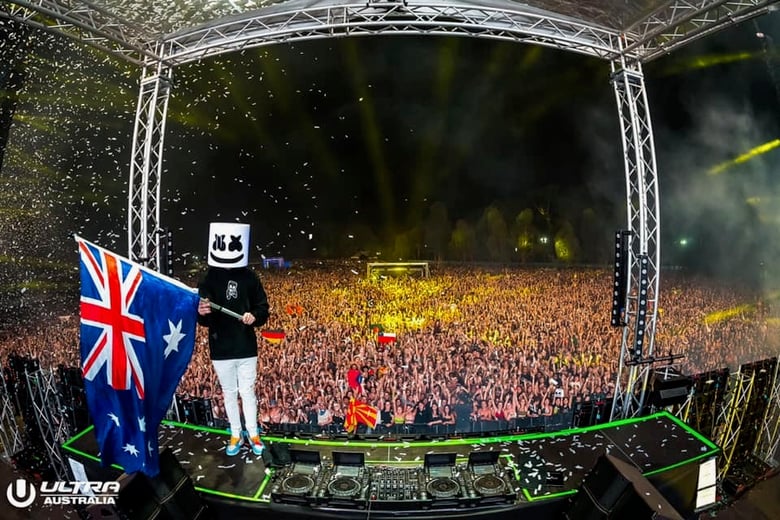
Does licensing an international event create any unique challenges from an operations perspective? Can you discuss the unique challenges to producing a franchised event in Australia vs. other markets?
The Ultra organization has their own production team, production designer, VJ’s, crew, and other departments such as marketing. Our marketing department talks to their marketing department, their operations talk to our operations, their sponsorship team talks to our sponsorship team, etc. Both sides liaise and work very closely with each other.
On the production side of things, we work with their production designer and our production team. Once we get to our site we know what's going on, our restrictions, and what we can and/or can't do. The team in Miami will send us a design and from that design, our production team will come back and say, “These are the restraints, this is what we can do, this is what we can't do," because we don't have those same companies, suppliers, vendors, etc. here in Australia.
A lot also comes down to budget. Australia is the most expensive country for labor and hire, especially when we're working on a Saturday, Sunday, or public holiday. If it’s a holiday weekend like Labor Day, you’re paying public holiday rates. It's like a franchise in every aspect. They've got their ways of doing things, and it's adapting to each country individually.
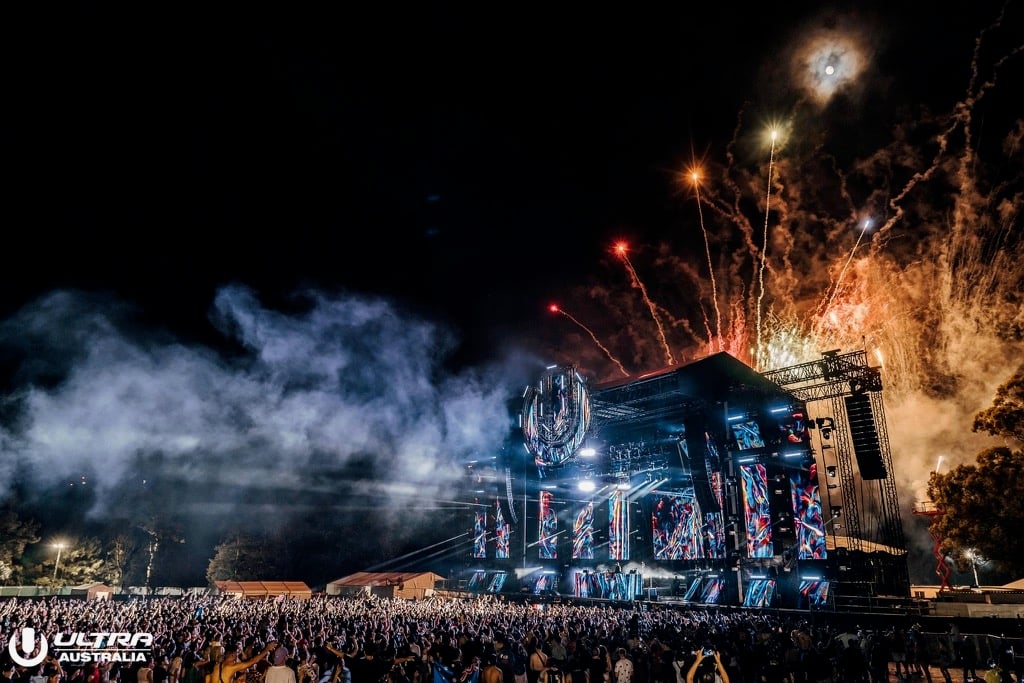
Ultra is known for their high level of production. I'm sure the organization wants to keep that element consistent across all their markets. What are some of the unique challenges that come with producing an event with that high level of production?
Yes, 100%. The main stage is an entire project in and of itself. Ultra is known for their main stage. We had close to 300 square meters in screens just for the main stage. Jeremy Fleming from Stagekings builds the stage itself. The first year we did everything out of scaffold. There were hundreds of workers on the ground for two weeks working on the stage. It’s amazing to see the engineering that goes with it. I’ve never seen anything on that level.
And then you've got the Resistance (Ultra’s underground concept) which has grown quite a bit. Resistance is a completely different design and project. You’re working with somebody who just handles the Resistance stage. That team oversees the look and feel and the artists.
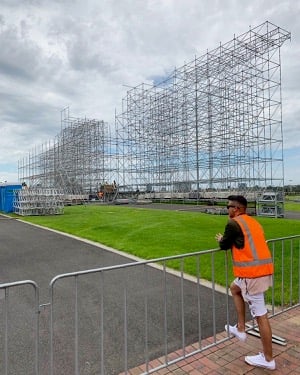
Does your team build all the stages or do they get shipped from event to event?
Everything is built here in Australia. Nothing gets shipped. We use local suppliers that we know and trust. The cost to import these things would be really high.
What does your timeline look like? When do you start the planning process?
It’s normally a nine-month project. We roadmap everything six to nine months out. Once you finish the last event, you take a few weeks break before you’re back at it, balancing up and de-briefing with your team and each department. Before you know it, you’re back into the planning stage for the next year.
A lot of the time we have shows going on simultaneously, so it's important to plan what's happening and when things are rolling out, such as the announcement of the dates.
When do you start working with your third parties (i.e - vendors, suppliers, artists, and sponsors)? What tools do you use to manage that process and collect everything you need?
Once we lock down a date, we start working on locking in the artists. Ultra has two other shows before ours (in Abu Dhabi and South Africa). We work really closely with Adam Russakoff who handles all the artist bookings for Ultra. We have to stay transparent and in good communication because what works for us in Australia might not work for South Africa, or Abu Dhabi, etc. Adam does an amazing job at pinpointing artists for all three different countries. We put our initial wish list together and our artist booking team works with Ultra to come up with the right line-up. Sometimes it’s just impossible for an artist to come to Australia because of different requirements and costs.
Once our artists are in place, we hand over their rider and any other relevant information to the appropriate departments, from production, to catering, to artist relations. This is where each department has their own process for how they manage everything.
Production will usually start ordering the various equipment and inventory needs, including everything from forklifts and tents, to the pyro (a big part of Ultra). The food and beverage team may start planning catering and food vendors for staff, artists, and sponsors. The Artist Relations team will typically start outreach with artist managers to get everything they need there.
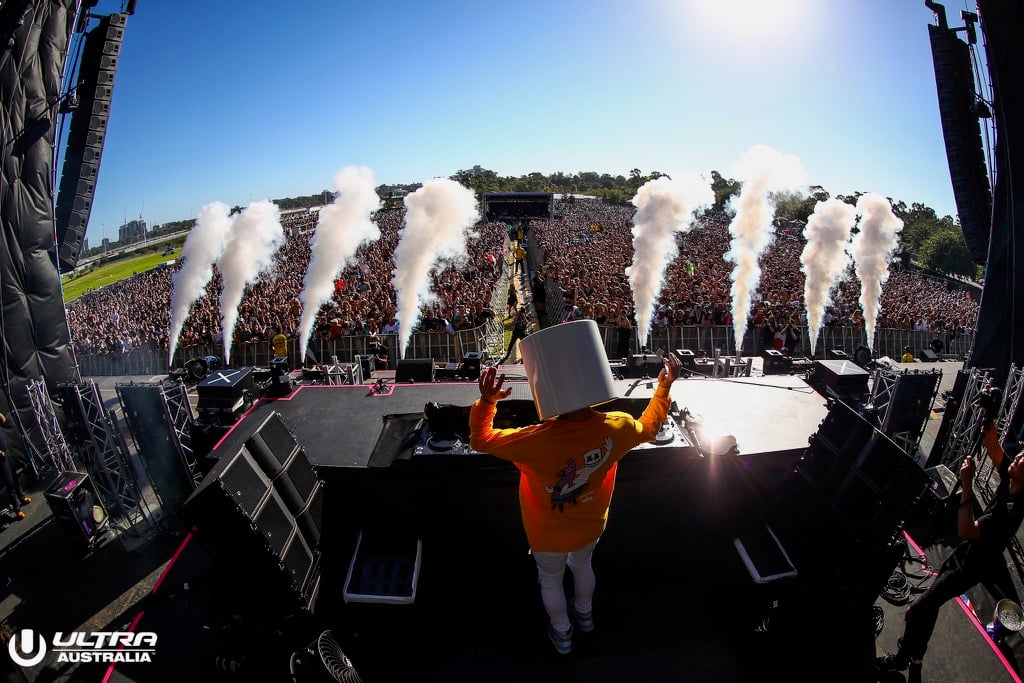
Each department usually works in spreadsheets to manage their orders, schedules, and other relevant details. Although each department may have really good systems in place, the information can sometimes be fragmented and a bit difficult to track across all departments.
The artists-relations planning is a big task. We typically have weekly meetings to get through all of it. Myself and another co-worker meet everyday to plan out the following week. One day might be dedicated to a different area—marketing, hospitality, production, logistics, whatever it may be. We go over what’s currently happening, any new challenges, and what needs to be done. Every week we create a checklist and go through each individual item. We use tools like Asana and Google Docs to help keep us as organized as possible.
Organization is definitely crucial when there are so many moving parts. Are there any manual processes that you would like to see technology replace?
As it gets closer to the event, you’re getting inundated with emails. It’s hard to keep track of it all. We need an app or a platform that allows us to track and share information across all of our departments and third-parties.
We currently use WhatsApp, DropBox, Google, and Asana to manage our advancing process. It would be nice if we could consolidate all of these tools into one centralized platform.
Let’s dive into COVID stuff. How have you guys discussed how to move forward? Have you considered doing a virtual event?
For us moving forward, it's very hard to plan. We have the dates and we’re talking to the team and trying to get things in place. It all comes down to the capacity of what we can do. We're not getting too many answers from the Australian government right now, but some things are looking positive. The biggest concern is borders and international talent:
Will the talent be allowed in? How does that impact how we build our lineup?
We have an amazing selection of Australian talent in our backyard. We’re definitely open to the idea of supporting more local acts and relying less on the big international names. It’s actually an exciting time for local music growth in our country.
The team owns a venue down here with a 1,000 person capacity. We're trying to work with local authorities to find out what we need to do when restrictions are eased up to open. Is it hand sanitizers at every bar? temperature checks upon entry? ID checks? signed COVID waivers? What is the capacity that works for us financially? We need to be prepared; the last thing you want to do is open doors and end up losing money. We might have to open the clubs first and get a taste of how everything will work. I think baby steps are the way to get back.
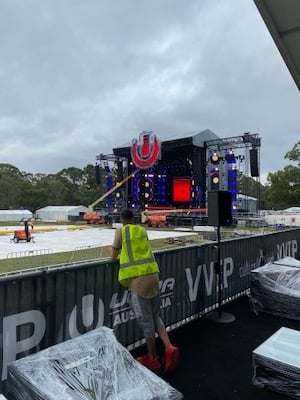
What advice do you have for people trying to break into the event industry?
We always take on interns and we’re always looking for new people, especially on these kinds of jobs. The more hands-on deck the better. If you love what you do, start small and work your way up. I started by handing out fliers in the street as a promoter for a nightclub. I suggest getting involved in as much as you can.
I understand that it's not a 9 to 5 kind of job, and I don't think anybody in the events industry would ever say that. It's a 24-hour job—we're working during the day in Australia, and then at night we're dealing with the international artists in Miami handling visas with agents, and it goes on to early hours of the morning. It's definitely not an easy job. But it's a very enjoyable job, we love what we do, and we have a passion for it, and if you've got a passion for it then it will oversee any complications that come along the way.
If you’re a young person, raise your hand. A lot of these events agencies love to hire new people and interns and teach the new generation. Raise your hand if you've got a skill, we'd love to hear about it. It's about finding new skills and people within key industries. If you're a wizard with marketing or you're a wizard in production, there are a lot of key stakeholders that are always looking for the next generation of kids to come through. We love people that work hard and that are dedicated and want to put in the hours and aren't afraid to take on other jobs along the way and not just stay in their lane.
What’s the craziest experience you’ve had working at an event?
Production is always something that leads up to the last minute, it's always down to the wire. For the first major Ultra Australia, we were running a little behind schedule and then as we're clearing the site to open the doors, one of the boom lifts just conked out. We couldn't believe it. We had this massive scissor lift right in front of the main stage and the whole thing just conked out. We couldn't believe that after all the hard work put in, we ended up with this massive boom in the middle of the main stage, the focal point of the festival. We literally made the decision to open the doors and get people in and then we fixed it within the hour, but of course it had to happen right before doors opened.
This year we had a similar scenario, except it wasn't the boom. It was the generator. Right before we were about to open the main stage, the generators just stopped working, and we had the same scenario. Again, we didn't open the main stage for the first hour. We had to reconfigure the main stage and replace the generators and we were like, "Are we jinxed to not open the first hour of the main stage...ever?"
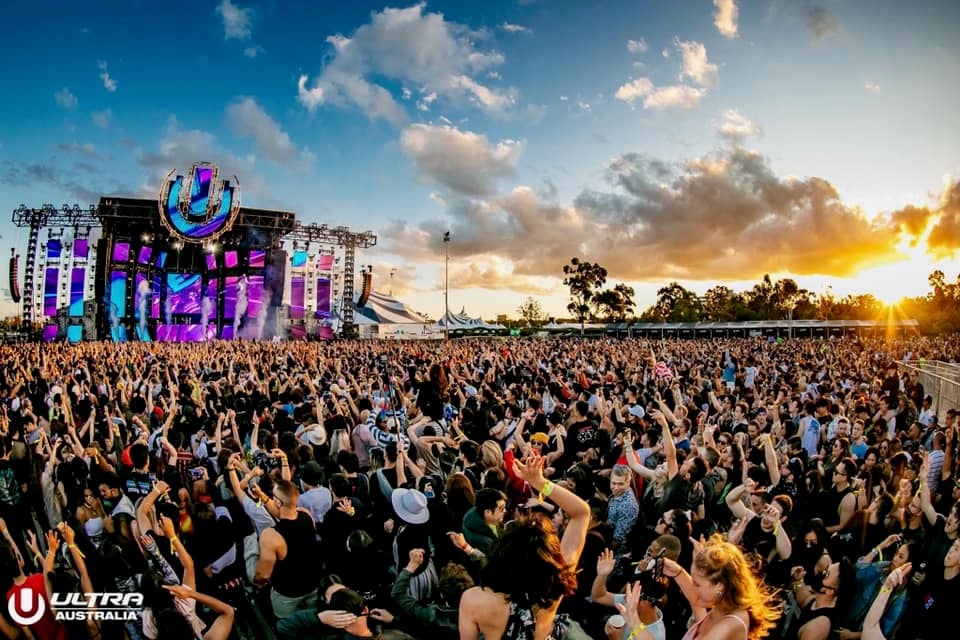
Like you said, it's 24-hr work. What keeps you motivated? What keeps you producing live events?
It's definitely something that I love as a passion. Every event that I work on, I make sure to put the radio away, walk around for about an hour on my own and just take it all in. These events go quickly. With a blink of an eye it’s over and you don’t get to enjoy it or experience it because you’re putting out fires or trying to make someone happy. It’s important to take a step back and look at what you’ve done. I get my enjoyment out of knowing that I love what I do. I started off a promoter handing out fliers in the rain and now I’m putting on large scale music events. It’s been a journey and I’m excited about the future.
It’s obviously a challenging time in the industry but it could also be a blessing in disguise. It’s given the industry a breather and a new light about what’s to come. Hopefully, we can work together. I’m excited to work with new people, talent, artists, and bands and see what we can all do. It’s good to see a lot of promoters working together to challenge COVID and figure out how to get out of this and move forward.
I think your point about stopping and appreciating the music and work is more poignant now than ever.
Travis, thanks for your time.
-----
LENND, INC
Lennd is a next generation event technology platform that simplifies operations and planning so event teams can work smarter, move faster, and improve their ROI.
To learn why some of the most respected event teams trust Lennd to power their operations and learn more about our virtual event tools sign up for a demo: www.lennd.com.



